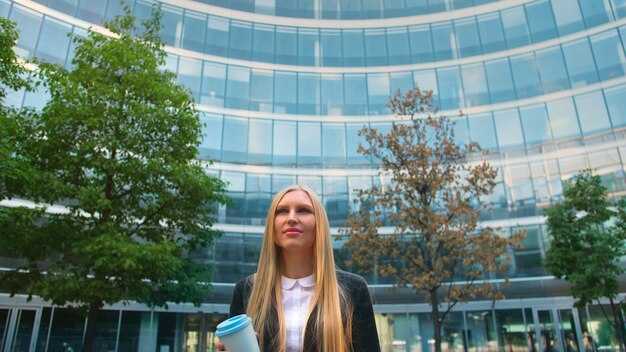Enroll today at Hungary’s Largest Economics & Business University to accelerate your career in a city buzzing with startups, banks, and multinational offices. The education here blends rigorous theory with hands-on application, provided by our faculty and industry partners, and the excellency of the program is reflected in strong internship rates and graduate outcomes.
Our program structure starts with an intensive foundation semester and continues with a stream of specializations. You can choose a education package that fits your goals and budget, with scholarships, internships, and career services included where available.
Students come from nearly 40 countries, joining a community that hosts an annual congress where alumni share case studies and current market insights.
On-campus life blends study and culture, with breaks filled by events, clubs, and laboratories that foster collaboration, and a playlist featuring musicreggaetonedmtechnorockmetal and musicreggaetonlatinpop to energize focus.
Located in the heart of the city, the university connects you to local startups, financial firms, and regional offices, giving you direct access to internships, guest lectures, and real-world projects that sharpen your competitive edge.
Hungary’s Largest Economics & Business University – Start Your Adventure; CLEAN ENERGY AND AI CONFERENCE 2025 – EFELA Annual Congress in Budapest
Register today to attend the Clean Energy and AI Conference 2025, EFELA Annual Congress in Budapest, and start your adventure at Hungary’s largest economics & business university. The agenda unveiled highlights new collaborations and practical roadmaps, with a friday opening designed to mobilize students, diplomats, and industry leaders.
Expect sessions on energy transition, grid modernization, AI ethics, and data-driven management. lászló and rákóczi will present real-world case studies, representing schools from Hungary and abroad. brigitta and thomas join as diplomats, linking canada and portugal with research teams and industry partners. The event will bend traditional boundaries and bust common myths, fueling exciting exchanges that encourage hands-on learning and innovative thinking.
Want to participate? Create your reservation through the online portal, and complete belépés to the campus with a valid ID. The legal entry requirements for non-EU participants are clearly outlined, and the canada and portugal contingents will benefit from streamlined verification. The program is well organized, with clear programme tracks and practical steps to maximize your study and innovation outcomes.
In addition to formal sessions, the program offers a hokku reading corner, a disco networking evening, and opportunities for an extension into collaborative projects. The conference highlights contributions from students and faculty alike, showcasing how different schools come together to share knowledge, tools, and entrepreneurial spirit. Attendees gain direct access to resources that support study, internships, and career development in energy, AI, and sustainable business.
| Program element | Detalhes | Notas |
|---|---|---|
| Abertura | Friday morning session at Main Hall, buda campus | unveiled topics set the tone for the EFELA congress |
| Keynote | Clean energy trajectories and AI governance | speakers include lászló and rákóczi |
| Panel | Representing schools and international partners | diplomat brigitta and diplomat thomas participate |
| Networking | Disco night and hokku readings | informal discussions fuel collaborations |
| Participation logistics | reservation portal, belépés process, visa notes | extension options for ongoing collaborations |
EFELA 2025 Budapest: Dates, Registration Steps, and Venue Maps
Register now on the official EFELA 2025 portal to secure your place and download the venue maps in advance. Dates are september 12–14, 2025, in urban Budapest, where hungarian universities partner with canadian colleagues for a hands-on program. In kíséretében, the organizers present a record of applied work sessions and development tracks that run during the day, with wild ideas and anthems of collaboration fueling nagy-scale interaction and extension opportunities. The program uses latin-script IDs to simplify check-in, belépési guidance for international attendees, and an extension for early-bird registrants. Abroad participants will find clear instructions and a ready support network. On site, you can explore a display of the oldest campus traditions and even enjoy a casual cigar corner for informal conversations.
Datas
The three-day program runs september 12–14, 2025, with a dedicated szerda track for Hungarian-language content and strategic policy sessions. Opening plenary occurs in the main hall on the ground floor, followed by parallel tracks across economics, business, and city development. The schedule minimizes travel time and includes coffee breaks, a lunch circuit, and opportunities to connect at the table during Networking Hours. The event closes with a summary plenary and a small reception near the bust of the campus founder, leaving attendees with concrete collaboration opportunities to extend beyond the conference.
Registration Steps and Venue Maps
Step 1: Create an account on the EFELA portal. Step 2: Choose your attendee category (academic, professional, or student) and upload required documents. Step 3: Complete payment by card or bank transfer; you will receive a digital belépési badge. Step 4: Confirm registration and download the venue maps package (PDF + interactive map). Step 5: Save confirmation and use the floor plan to navigate the established campus. The maps highlight the ground floor with the information desk, bust statue as a landmark, and table seating for quick meetings. For abroad attendees, regional support lines are available in your language to help during setup and travel planning.
CLEAN ENERGY Track: Session Highlights, Demos, and Practical Outcomes
Recommendation: As Hungary’s largest economics & business university, bust myths about energy costs with three on-site demos that produce auditable data for aacsb reporting. Focus on Sárospatak and Szombat facilities, and connect with partners in slovenia to share results across campuses where costs are highest. This effort aligns with a decades-long commitment to practical energy education.
- Session Highlights
- thomas opened with a 90-minute case study on cross-campus energy pricing and student co-design of solutions; participants from 12 schools across hungary and slovenia joined the discussion.
- The team built a detailed record of energy use at the Sárospatak campus, identifying three peak events and two shoulder periods for targeted demand management.
- We tested five interaction styles for classroom loads and hospitality facilities, noting how styles affect data quality and engagement across buildings.
- Demos and Practical Outcomes
- Demo A: Campus Solar Microgrid with Battery Storage
- Capacity: 120 kW PV and 240 kWh Li-ion storage
- Live demo length: about 60 minutes; data collected over four weeks
- Projected impact: 14–18% annual electricity cost savings; payback 6–7 years; peak shaving up to 20% on high-demand days
- Data package includes dashboards for students and staff, supporting aacsb-aligned reporting and cross-campus comparisons
- Demo B: Intelligent Building Energy Management and Student Dashboards
- Connects 60 loads across classrooms, labs, and dormitories into a single control platform
- Minutes per session: 45–60; dashboards show real-time consumption, cost alerts, and historical trends
- Outcomes: event-driven demand response tests reduced grid imports during peak hours by 12–15%
- UI design includes a themed labeling approach such as musicreggaetonedmtechnorockmetal to test user experience
- Demo C: Cross-Campus Energy Package for Education and Hospitality
- Package links Sárospatak and Szombat facilities with a Slovenian partner campus to test data sharing and coordinated energy actions
- Use cases include student innovation projects, hospitality training simulations, and campus operations planning
- Expected outputs: a shared performance scorecard and a scalable growth plan for replication across other schools
- Demo A: Campus Solar Microgrid with Battery Storage
- Practical Takeaways and Next Steps
- Publish the first results report this year, including savings, load reductions, and student outcomes
- Finalize the data package for aacsb-aligned accreditation review
- Schedule a regional workshop on Sárospatak and Szombat campuses to scale pilots, with a focus on hospitality facilities and education buildings
- Plan a year-long expansion plan to embed energy analytics into curricula and campus operations
AI Conference Track: Real‑World Use Cases, Panels, and Startups to Watch

Attend the AI-powered forecasting session first to gain three concrete takeaways you can apply to your program, capstone projects, and funding proposals.
Real-world use cases span across finance, supply chains, energy markets, and government analytics. Although some models demand data governance, practitioners share approaches that translate data into decisions, from risk assessment to demand planning. Expect package-level components and horsepower metrics that teams can port into student projects or exchange programs across campuses.
Panels feature professionals from károlyi-csekonics and partner institutions, representing multiple sectors. They discuss translating research into funding-ready proposals, managing multilingual data language, and presenting results to látogatóink during campus ceremonies. The discussions emphasize practical workflows rather than theory.
Startups to watch include efela, which demonstrates AI-powered financial services for SMEs, plus teams from retail and logistics. They show real-time analytics, risk controls, and user-friendly interfaces that non-technical audiences can test. The szombat networking session after the sessions features zenekarokat performances and informal exchanges that connect researchers with practitioners. A guided tour of the data labs and startup booths helps attendees see the workflow in action.
To maximize value, engage in cross-language exchanges during Q&A, compare notes with peers at the home campus, and capture insights onto a shared deck. Gather contacts from efela sponsors, note practical steps for a course module, and build a plan your program can pilot next semester. The ceremony closing provides a compact summary of what worked and what to try next.
Academic Partnerships: How to Join Research Projects and Joint Programs
Target one project that matches your field and email the host with a concise concept note, your home university, and a concrete getting plan that shows how your skills fit the case. Propose a short meeting in the Károlyi-Csekonics room to review the offering and the helyszín (location) for the collaboration, with a saturday slot to keep the discussion practical.
Next, assess the program’s ranking and the pool of mentors. Look for a titled project that aligns with your choice and note how egészen concrete the objectives are and how the collaboration would support your professional goals over years of study.
Prepare materials: a one-page research concept, a short CV, a list of 3–5 relevant courses, and a case study illustrating your method. If applicable, include a live-looping example to demonstrate data handling or a pilot methodology. Submit through the official agreement channel and await an official offer or a formal offering that confirms the collaboration.
During the process, engage with the host actively: set up a second meeting, ask for a clear scope, and request access to the project’s data pool and any required ethics or governance steps. Clarify the egészen practical timeline, including start date, expected milestones, and the support you will receive from campus services and the administrator on nights or weekends as needed to fit your schedule.
A concrete case: a student from szász urban studies joined a joint program in the Károlyi-Csekonics building, room 402, to work on a project titled “Urban Markets and Policy Dynamics.” The collaboration included a short data collection phase, weekly progress reviews, and regular consultations with a diplomat adviser to align with external standards; gondoskodnak about mentorship and access to a dedicated home-classroom and an occasion to present findings at campus events on szombat evenings.
Funding and Logistics: Scholarships, Travel Grants, Visa Tips, and Lodging
Start with a concrete plan: target central annual scholarships and travel grants tied to your studies abroad. Confirm February deadlines, prepare a concise CV and a one-page study plan, and collect two references from professors. If your supervisor provides a címmel reference, attach it; otherwise ask for a short letter describing your role in the project. Contact the host department to verify available funds, required documents, and how to prioritise applications. For quick questions, reach out to László in the financial office who can outline eligibility and typical coverage. If you want to build community, join zenekarokat and indie-pop groups on campus; they share practical tips and sometimes sponsor informal trips. Avoid instant-fogas decisions–schedule meetings and keep minutes of every discussion. When abroad, ask whether the host can organise lodging options and whether travel grants cover accommodation costs. Attending csütörtökön information sessions helps you understand caps and eligible expenses. The February ceremony marks the start of the annual orientation for new scholars, a good moment to network with the central economy and your department; this is also a chance for students exploring opportunities to expand their studies.
Scholarships and Travel Grants
Apply to the central, annual scholarship programs and travel grants offered by the university and partner organisations. Use a clear ranking of options and prioritise funds that align with your field of studies and economy interests. Prepare any required formats (CV, abstract, short video) and tailor each application to your host department. László can guide you on what grants fit your profile and how to structure your budget. Keep a detailed calendar, as February applications often require a quick interview and a short task; minutes of conversations help you track next steps. If you study abroad, plan for travel during semester breaks; many grants cover both travel and part of living costs, especially for students exploring opportunities in the central region.
Visa Tips and Lodging
Start visa planning once you have an offer letter and funding confirmation. Gather your passport, admission letter, proof of funds, and a housing plan; check the embassy site for required translations and documents. Schedule the visa appointment early, since slots can fill quickly and sometimes align with csütörtökön, so adjust your plans accordingly. For lodging, compare on-campus hall options with private hosts; ask about room types, floor layouts, and proximity to your department and the ceremony hall. If you share a flat, confirm utilities and lease length; short-term stays are common during selection periods. On-campus housing is often organised and close to facilities; if you stay off-campus, map your minutes of commute to the central campus and plan around February events and the oldest campus buildings. The student community, including indie-pop groups, can help you find neighbourhoods with good transit to the hall and department; exploring with a local host makes settling easier. Finally, be aware of hybrid schedules–some sessions are in person, others online–so you can balance attendance with exploring and studies, sehr.
Post‑Conference Pathways: Internships, Networking, and Careers in Budapest
Apply now to the university extension program to secure a first‑hand internship in Budapest and set a clear path for a career in hungary or abroad. This entry point focuses on three lanes: internships, networking, and long‑term planning.
- Internships in Budapest
- Target roles sit between research and operations in hungary and abroad; pursue positions in fintech, public policy, cultural institutions, and startups.
- Leverage partner networks through the university framework to connect with organizations in hungary, slovenia, and yonsei alumni offices.
- Prepare a concise, written CV and a targeted cover letter; attach a 1‑page profile with a 3‑point action plan and measurable outcomes.
- Apply to 8–12 opportunities by september; use the extension option when you need visa or permit support.
- Seek university‑led programs that provide hands‑on projects, flexible schedules, and exposure to green technology initiatives.
- Keep a log of highlights from each application and request quick feedback from career coaches to refine your approach.
- Networking and Mentoring
- Attend campus fairs, talks, and alumni gatherings in central budapest; use nearby monuments as friendly meeting points for quick chats.
- Join partner groups linked to hungary, abroad exchanges, and international offices; connect with overseas offices such as yonsei or other affiliates.
- Explore venues with a relaxed vibe–indie-pop playlists set a comfortable tone for conversations with mentors and peers.
- Keep a green notebook of contacts, levels of interest, and next steps written after each meetup; set reminders in your calendar.
- Careers and Planning
- Draft a one‑year plan that includes internships, skill upgrades, and language goals; prioritize roles in hungarian markets with international links.
- Focus on sectors with wide growth potential: IT services, environmental projects, urban development, and cultural management; map a list of target employers in budapest and abroad.
- Engage with university career services for mock interviews and resume reviews; discuss mandatеs and legal steps for internships in hungary.
- Develop a compact personal statement, including a hokku‑inspired opening line to show creativity in written profiles.
- Maintain a portfolio of projects and outcomes; update it quarterly and align with the program’s framework.
Tip: plan the September window to balance local and abroad opportunities, and align each application with a clear 12‑week timeline. This approach helps you demonstrate motivation, reliability, and a willingness to learn both within the university ecosystem and in partner networks.

 Hungary’s Largest Economics & Business University – Start Your Adventure">
Hungary’s Largest Economics & Business University – Start Your Adventure">

Comentários